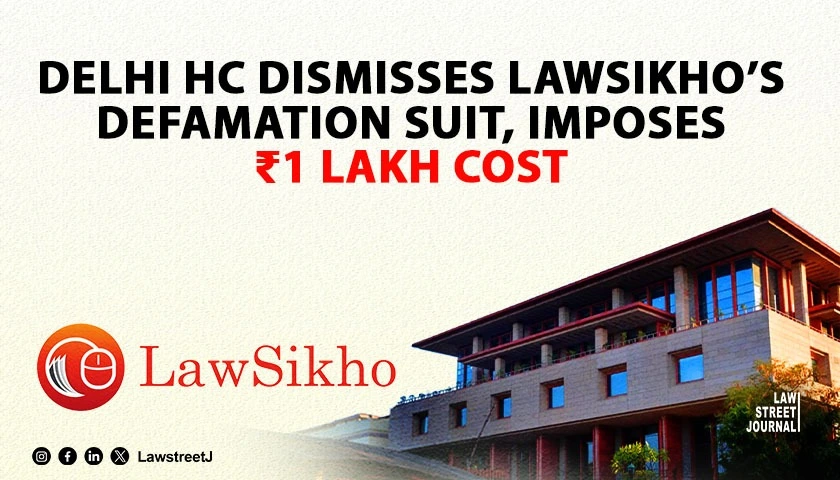New Delhi: The Delhi High Court has dismissed a defamation suit filed by Addictive Learning Technology Limited and another plaintiff against multiple defendants over allegedly defamatory tweets on social media platform X (formerly Twitter). The court ruled that the suit failed to disclose a valid cause of action and lacked legal merit.
Delhi High Court Ruling on Social Media Defamation: Key Takeaways
Justice Manmeet Pritam Singh Arora made crucial observations regarding online speech and defamation laws, emphasizing that mere disagreement or criticism on social media does not constitute defamation.
The case was filed against Aditya Garg and others over tweets that the plaintiffs claimed defamed them and harmed their business reputation. However, the court observed: “Platforms like X are conversational in nature, where users engage in debates, counterarguments, and expressions of personal opinion. A holistic reading of the exchange suggests that the impugned tweets do not amount to defamation.”
LawSikho Defamation Case Dismissed: What the Judgment Means for Online Speech
Addressing whether the tweets harmed the plaintiffs, the court noted: “The plaintiffs themselves initiated the discussion and voluntarily engaged in an online debate. They cannot later claim defamation merely because responses were critical.”
The court also made significant observations regarding the nature of the alleged defamatory tweets, stating: “The court notes that utterances in the nature of tweets in a conversational thread on platform X are not to be assessed in isolation for the purposes of determining a defamation claim. The nature of the medium is casual and fast-paced, conversational in character, and an elaborate analysis of a 140-character tweet (or more) may be disproportionate. Importantly, the absorption by the reader and the reaction to the post are impressionistic and fleeting.”
Additionally, the court highlighted that the plaintiffs had an alternative remedy under the Information Technology (Intermediary Guidelines and Digital Media Ethics Code) Rules, 2021, which they did not utilize. The court remarked: “For an aggrieved plaintiff or claimant to approach the court without having triggered or exhausted the said time-bound remedy is a material factor to be considered.”
The court further noted that social media users who voluntarily participate in discussions should be prepared for responses that may be critical. Mere annoyance or disagreement does not constitute defamation.
In a specific directive, the court ruled: “The suit is rejected under Order VII Rule 11(a) of the Civil Procedure Code as it fails to disclose any cause of action. The plaintiffs are directed to pay ₹1,00,000 in costs to the Delhi High Court Legal Services Committee within four weeks.”
The court also observed that a person cannot be penalized for holding an opinion and that a cause of action for the aggrieved would only arise if such an opinion is translated into action—i.e., if it results in injury, harm, or loss to the aggrieved party. It further held that a mere allegation by the plaintiff that the defendant’s statement amounts to an innuendo is not sufficient to prove defamation.
Appearances:
• Advocate Raghav Awasthi appeared for the plaintiffs.
• Advocates Himanshu Bhushan and Shagun Srivastava appeared for defendant no. 2.
Case Title: Addictive Learning Technology Limited & Anr. v. Aditya Garg & Ors.



![Delhi High Court Sets Aside Arbitral Tribunal's Award Against NHAI in Highway Project Delay Case [Read Judgment]](/secure/uploads/2023/07/lj_9605_23374c2e-392c-4491-a2fe-f2f12fc5272f.jpg)
![Delhi Court Rejects Stay Request in Defamation Case Against Rajasthan CM Ashok Gehlot [Read Order]](/secure/uploads/2023/08/lj_5208_80de1ddc-d76a-4f7f-b180-408e3ae14fb4.jpg)





